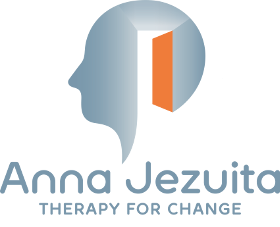Therapy for Problems Around Gender, Sexual Identity & LGBTQ Issues
Are you questioning your gender or sexual identity or are you in the process of transitioning or coming out?
In your journey – whether gay, lesbian, queer, transgender or non-binary – you are possibly embarking on an ongoing battle between the needs of ‘you’ as a full deserving individual being, and of ‘you’ as a social being – a product of societal expectations, conditioned to assess your own happiness through the approval of others.
Which is more important
Staying true to self or to the values and beliefs that keep you and your community together? Being safe or being self?
Grappling with those questions on a daily basis can lead to anxiety, depression, stress and low self-esteem.
Therapy for Sexual Identity, Gender and LGBTQ Issues
If you are questioning your sexual or gender identity or you’re facing gender- and sexuality- related issues, support of a non-judgmental compassionate therapist may be useful during the various stages of the process.
In the beginning, therapy can help by exploring your doubts, concerns and uncertainties around your gender or sexual identity and support you in finding inner resources to persevere with your quest. Later, through the journey, your needs and priorities may change: from emotional and practical support in planning the process of coming out, to dealing with discrimination and the fear of bullying or abuse. You may want to use the therapy space to explore your issues around relationships, parenting, and marriage.
You may be coping really well with the challenges related to your sexual or gender identity, but sometimes it may feel like too much to face on your own. Therapy can help in times when you feel overwhelmed or fed up, or when you don’t feel like having to make yet another choice between staying true to yourself and social acceptance.
It is a sad fact that, even though UK society is more accepting of LGBTQ communities than a decade ago, ‘inhabiting’ those identities is still a daily job and struggle. Because of that you are likely to experience more stress and anxiety than most people, which is a really important factor to remember whilst assessing your wellbeing. (just like, in their professional roles, policemen or nurses are prone to more ‘work stress’ than say an accountant or a plumber, due to the nature of the work that they encounter ). So the fact that you may need more support in therapy than others is not a sign of your weakness – it is a testimony of how far as a society we have to go until LGBTQ communities will not be singled out as ones “being accepted”.
Parents of gay or transgender children – how to support their search for identity.
You may have just found out something that you may have worried about before – your child’s identity is not what you thought it was. You were told by your child or maybe by someone else that they are gay, lesbian or that they are NOT a boy or a girl, but someone different.
You have to absorb the information, carry on with life, possibly support other family members – as well as the child who has just told you the news. How do you cope ?
The articles I wrote for the Counselling Directory give some useful insight and advice on how to support yourself and your child:
Advice to teenagers to help their parents to adjust to the news
How to support yourself and your child during the transgender journey
If you feel you need to talk about counselling or therapy for Gender, Sexual Identity, Trans or LGBTQ issues and your child and your family
Some useful information around Gender, Sexual Identity, Trans & LGBTQ issues
Two websites that give lots of useful and helpful advice and support
Gendered Intelligence
Gendered Intelligence (GI) is a not-for-profit Community Interest Company, established in 2008.
Our mission is to increase understandings of gender diversity through creative ways.
Stonewall
Stonewall: We’re here to let all lesbian, gay, bi and trans people, here and abroad, know they’re not alone.
